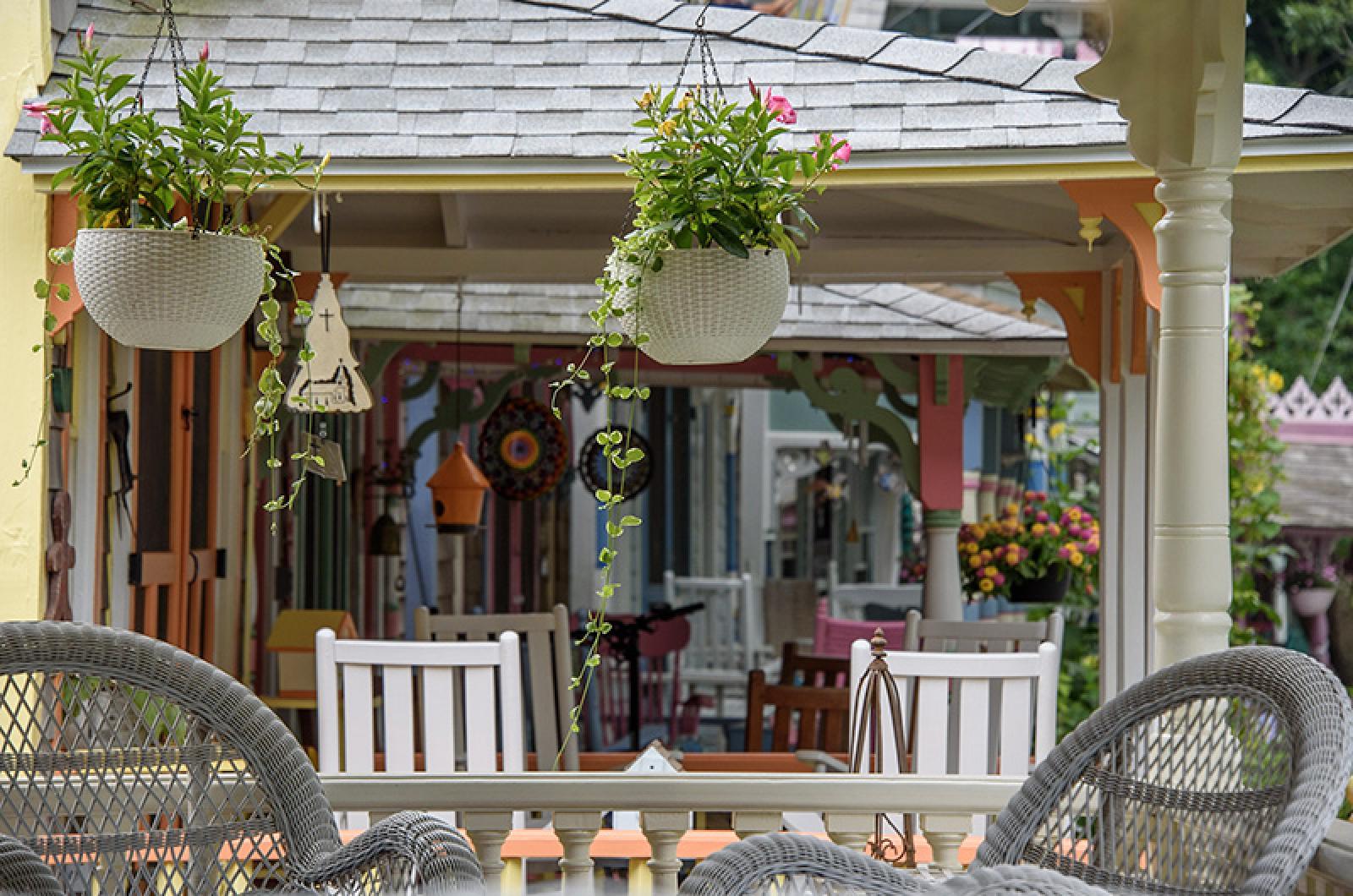Wednesday nights at the Tabernacle in Oak Bluffs,voices ring out in song at the traditional Community Sing. The scene is one of nostalgic, neighborly Americana beneath the Tabernacle’s three-level fluted roof, where generations of Camp Ground summer residents have gathered for music and worship.
But beneath the harmony, a current of turbulence has begun, as Martha’s Vineyard Camp Meeting Association (MVCMA) leaseholders question the direction of the community’s board members, including a recent decision to sue the Oak Bluffs Planning Board.
Speaking with the Gazette Tuesday at a meeting held outside the Camp Ground, leaseholders described an organization that collects rents and imposes rules — from quiet times between 11 p.m. and 8 a.m. to how and when properties may be maintained — without formal representation from residents.
“We are treated . . . as tenants and tenants only,” said Tara Urban, whose Island connections date back to her grandfather’s Coyle Bakery in the Arcade Building on Circuit avenue. “We’d like to be treated as property owners that have a significant vested interest in the campground and our properties.”
“I think that’s the biggest issue: We have no vote,” she said.
Martha’s Vineyard Camp Meeting Association president Andrew Patch confirmed that leaseholders do not have a governance role within the organization.
“They have a voice in the sense that we solicit their input,” said Mr. Patch, noting that time is set aside at the start of each quarterly board meeting for leaseholders to speak.
“It’s very much interactive, but they don’t have a vote on the board,” Mr. Patch said, adding that the rest of the board meeting is closed.
The Camp Ground was founded in the 19th century as a summer tent encampment for the Methodist faithful. Its Victorian gingerbread cottagers and quiet walkways have also become a favorite tourist destination, and each August thousands flock to Grand Illumination Night, a tradition that dates back to 1869.
Worship services were originally held under a tent. The Tabernacle was built in 1879 and the lighted cross added to the top in 1926.
The current restoration plan includes replacing the roof on the Tabernacle, and building a 1,300-square-foot addition on the back of the Tabernacle that would house 10 bathrooms, a back stage area for performers and a climate-controlled space to store a grand piano that is used for events.
The project was reviewed by the planning board in early June as a site plan review. In the end the board voted 3-0 to approve the work, but apply a condition that requires the camp meeting association to show evidence of cooperation with the town wastewater department for connecting the bathrooms to the town treatment plant. A second condition requires the association to hire a consultant to evaluate the storm water management plan.
The camp meeting association filed suit on July 11 against the Oak Bluffs planning board, seeking to reverse the set of conditions.
The conflict over the bathroom annex sparked more than 30 letters to the Oak Bluffs planning board with close to 25 of them opposed to the project. Several Camp Ground residents said that the decisions were made without input from leaseholders. Ms. Urban said this has been hard to explain to people who live outside the enclave.
“The Island thinks it’s us,” she said.
Camp Ground resident Craig Hall said he and his wife Elsie inherited their Trinity Park cottage from his parents. They love to bring their grandchildren to the weekly sings, Ms. Hall said.
“The community culture is so wonderfully inviting for children,” she said. “They make children feel very welcome.”
But Mr. Hall added that he felt the association lacks respect for the leaseholders, who must renew their land agreements every year or face the prospect of either selling or moving their houses.
Ms. Urban agreed that the current conflict is an unwelcome disturbance to what she described as a happy community where old friendships are renewed and new ones made each summer.
“It’s about relationships,” Ms. Urban said. “When we’re neighborly, there’s nothing like it.”







Comments (29)
Comments
Comment policy »